Which JuiceBox Home EV Charging Station Is Right For You?
If you’re a homeowner with an EV, you’ve undoubtedly spent a good deal of time shopping around for home chargers. Maybe you’ve already got one in your garage, and you find yourself wondering whether the technology has progressed sufficiently to warrant an upgrade.
No matter which camp you find yourself in, one thing is certain: it’s hard to know which home charger is right for you. Enel X Way makes some of our favorite home EV chargers on the market, the J uiceBox series, but even within that product lineup, there are three different chargers to choose from: the JuiceBox 32, JuiceBox 40, and JuiceBox 48. So, to help you narrow down your search for the right home EV charger, we’ll take a look at the commonalities and differences between these three excellent, competitive home chargers.
Shared Features
First, let’s take a look at what’s common between all three Enel X Way home EV chargers – a surprisingly long list of thoughtful convenience features. Between the JuiceBox 32, 40, and 48, all three models feature WiFi connectivity so that you can connect your charger to your home network. By extension, all three are therefore compatible with Enel X Way’s mobile phone app and the web portal, which enables you to monitor and schedule your charging remotely or search for public charging stations near you. All three chargers can also use that WiFi connection to send a notification when your car is done charging, or issue reminders when life gets so hectic that you forget to plug in your car.
You can even integrate your JuiceBox 32, JuiceBox 40, or JuiceBox 48 with your existing Amazon Alexa, controlling your home EV charger with your voice from the comfort of your own home.
Additionally, all three Enel X Way JuiceBox home EV charger s boast attractive, integrated LEDs to communicate at-a-glance statuses like power, connectivity, and your vehicle’s current recharge status. The housing itself on all three models is indoor- and outdoor-rated, with weatherproof and dust-proof construction from durable polycarbonate.
Finally, there is the plug connector itself, which is common between all three Enel X Way JuiceBox home EV chargers. It’s an SAE-J1772 universal connector, making it essentially future-proof and universal; all that’s needed to adapt it for use with Tesla vehicles is a simple, common adapter.
Differences
Now, let’s talk about the differences between the Enel X Way JuiceBox 32, 40, and 48 home EV chargers, starting with the JuiceBox 32.
The JuiceBox 32 is the lowest-powered of Enel X Way’s JuiceBox line, with a nominal current rating of 32 amps. That’s still plenty of juice, mind you; the company advertises EV charging at up to six times the speed of level 1 chargers. Still, if you own an EV with a high-capacity long-range battery, the JuiceBox 32 might not be for you. Instead, the target market for the JuiceBox 32 is those consumers who live in homes, condos, and other residences where electrical systems are limited to 40 amps. Obviously, 32 amps is less than 40, but most residential electrical standards recommend that circuits be able to provide 125% of the total draw of devices on a given circuit; in the case of the JuiceBox 32, that’s 40 amps.
The JuiceBox 32 is available as either a hardwired unit, or a plug-in device with a NEMA 14-50 240-volt plug.
Next up is the JuiceBox 40, rated for 40 amps for up to seven times the charging speed. This is the home EV charger for those with mid-range battery packs and access to at least 50-amp residential circuits, who are willing to pay a small bit extra for slightly faster charging speeds. Like the JuiceBox 32, the JuiceBox 40 is available either hardwired or with a NEMA 14-50 plug, so those who have garages already outfitted with a 240-volt plug don’t have to bother having an electrician out for installation.
Finally, there is the Enel X Way JuiceBox 48, which features 50% more oomph than the JuiceBox 32 – enough to charge your EV at up to nine times the speed of a level 1 charger. Available only as a hardwired unit with no plug-in option, what makes the JuiceBox 48 special is an adjustable maximum current, which can be set anywhere between 16 and 48 amps. This makes it particularly flexible, as it is compatible with residential circuits rated for anywhere between 20 and 60 amps, on top of being the highest-powered unit recommended for Teslas and other EVs with extended driving ranges.
Which One Is Right For Me?
At the end of the day, which one of Enel X Way’s lineup of JuiceBox home EV chargers is right for you comes down mostly to what you can most easily install in your place of residence. All three chargers offer the same convenient WiFi integration, standard J1772 plug, and water- and dust-resistant housing. If your garage has a NEMA 14-50 plug already, and you would just as soon not have an electrician out to install a hardwired unit, we would recommend the JuiceBox 40 for all circuits rated for 50 amps or more, and the JuiceBox 32 for more limited residential circuits. That rule still applies for hardwired units, but if your residential electrical system can handle a bit more, it’s worth it to spend the extra dollars to upgrade to the JuiceBox 48.
Finally, on the topic of having an electrician out to install your Enel X Way JuiceBox home EV charger: it’s easier than you might think. As EVs have grown in popularity, the number of qualified electricians with experience in home EV charger installation has grown in lock-step, so that finding a qualified electrician is easier than it has ever been. This is even more true of electricians experienced with NEMA 14-50 plug installation, as that plug type has long been used for countless home appliances. Additionally, there are many incentives and rebates offered at a federal, state, or electrical utility level to incentivize EV drivers to go toward home charger installation, as sort of a “thank you” for going green. Discover what incentives are available in your state.
We would never recommend attempting either type of installation by yourself unless you are a certified residential electrician. But if the thought of finding a qualified professional to install a NEMA plug or hardwired EV charger is what’s holding you back, fear not: it’s easier than you might think.
More by AutoGuide.com Staff











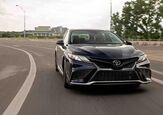







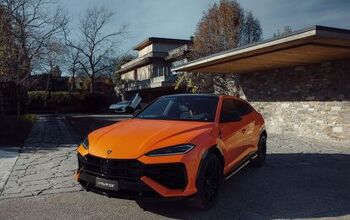





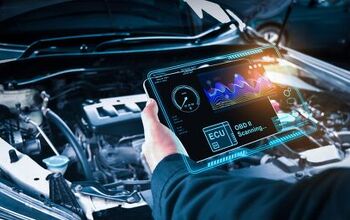



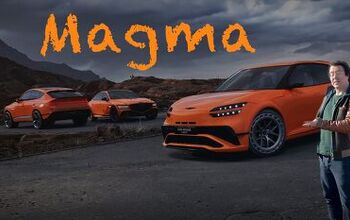

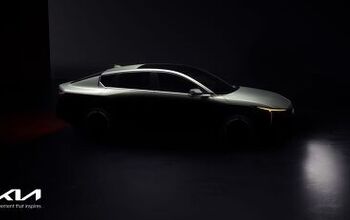

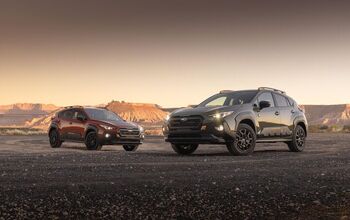
Comments
Join the conversation
DO NOT BUY ANY JUICEBOX. I purchased a 40Amp model this March and it's faulty, proven by side by side trials with another brand but the company refuses to initiate warranty return.
Buy anything else but not a Juicebox by Enel. The design and software on this is horrible. If there is a problem with Enel’s online servers or your wifi, you can’t charge your EV. This is bad design.